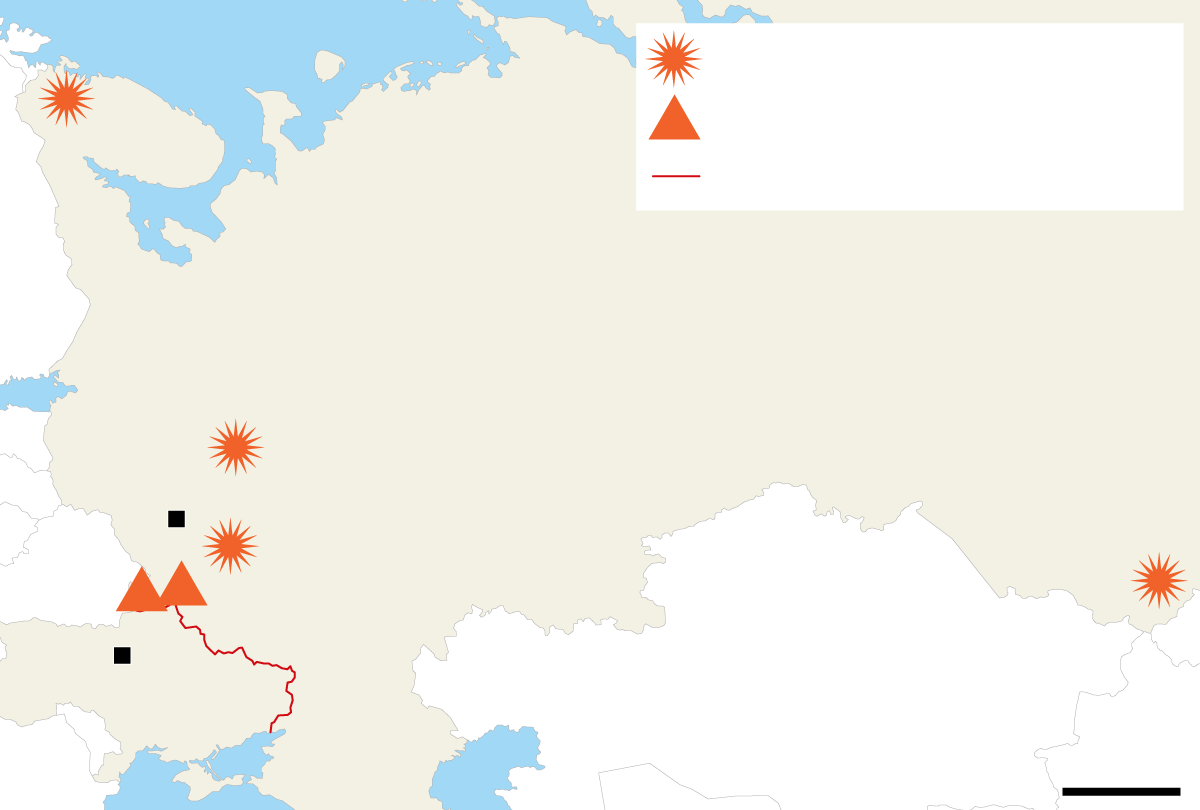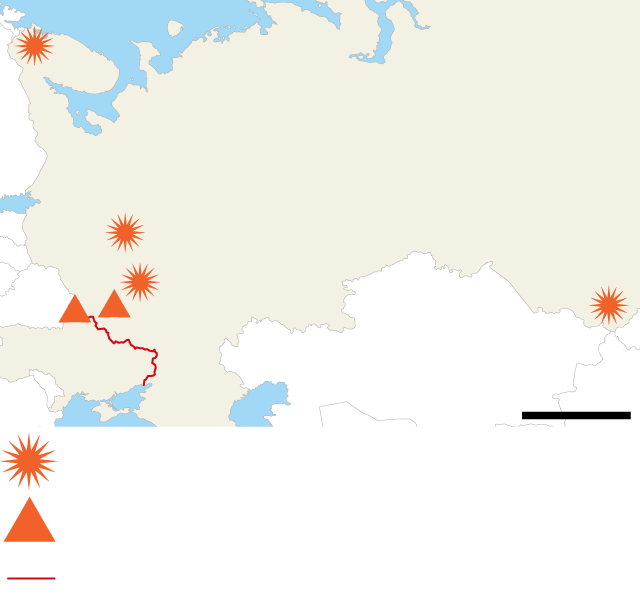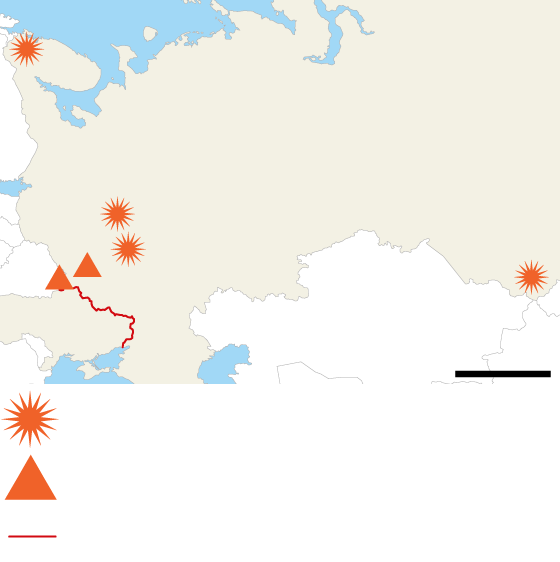Ukraine launches its most powerful and deepest attack on Russian air force on the eve of negotiations
Moscow and Kiev accuse each other of being behind the collapse of two railway bridges in Russia.


MoscowMilitary escalation on the eve of the second round of direct talks between Russia and Ukraine this Monday in Istanbul. The Ukrainian Security Service (SBU) claims to have destroyed 41 Russian bombers at four rear air bases. Pending clarification of the details, the operation may have destroyed a significant portion of the fleet of warplanes used by Russian aircraft to strike Ukrainian cities.
This is one of the most successful drone attacks in Ukraine since the start of the war and represents a strategic blow at a time when Vladimir Putin has intensified the bombing. The affected airfields are located in Ryazan, Ivanovo, Murmansk, and Irkutsk: never before has Kiev's army struck so deep into Russian territory. In the case of Irkutsk (Siberia), it is located about 5,000 kilometers from Ukraine, while the Murmansk base in the Arctic is 1,800 kilometers from the border.
The large-scale operation, dubbed "Teranyina," was also unique for its method: the devices were launched from trucks parked near the airfields. Kiev's secret services spent a year and a half preparing the attack, secretly smuggling the drones into Russia and placing them on truck trailers before activating them remotely. The Russian Ministry of Defense reports that it has made arrests related to the attack, although Kiev clarifies that all participants in the mission had previously left the country.
The affected aircraft were capable of delivering nuclear weapons, so the attack also undermines the Kremlin's atomic capabilities. Russian ultranationalist war bloggers have described the episode as the "Russian Pearl Harbor" and demanded a response similar to the US's against Japan in 1945. "This is not just a pretext, but a motive to launch nuclear attacks on Ukraine," wrote the Dva Maiora channel on Telegram.
Hours earlier, Russia had launched 479 missiles and drones into Ukrainian territory in a new record airstrike. A total of 472 Shahed unmanned aerial vehicles, three ballistic missiles, and four cruise missiles were fired.
Two bridges collapse in Russia
The escalation comes amid cross-accusations between Kiev and Moscow over the collapse of two railway bridges in Russian regions bordering Ukraine. At least seven people died and another 71 were injured when a bridge collapsed in the Bryansk region, hitting a passenger train. A few hours later, in the early morning hours, another railway bridge collapsed in the Kursk region as a freight train passed, injuring three.
The passenger train, headed for Moscow, was carrying 388 people and was approximately 100 kilometers from the Ukrainian border at the time of the incident. One of the fatalities is the driver of a truck that was traveling when the bridge collapsed, and among the more than 60 injured, three are seriously injured, one of them a baby. As for the Kursk freight train, the collapse toppled the locomotive, and the injured are the driver and two of his assistants.
Initially, the Russian Investigative Committee had pointed to two explosions as the cause and described both incidents as "terrorist attacks," but later reversed itself and limited itself to referring to "criminal cases." Senator Andrei Klixas, a close associate of Putin, did place the blame squarely on Kiev. According to the Russian politician, the Kremlin's response should be the creation of a "security zone" along the Ukrainian border "so wide as to exclude the penetration of terrorists" into Russian territory. For his part, Andrei Kartapolov, chairman of the Senate Defense Committee, stated that it is "definitely" the work of the Ukrainian special services.
Another Russian representative, Rodion Miroshnik, one of the most authoritative voices in Kremlin diplomacy, has indicated that Ukraine intends to "destabilize the situation" on the eve of the talks proposed by Moscow in Istanbul. He considers these actions "unacceptable" if Kiev is committed to a peaceful resolution to the conflict.
This Monday, the second round of negotiations between the two countries is scheduled to be held in Turkey with the aim of discussing the peace memoranda prepared by each side and the conditions for a ceasefire. Volodymyr Zelensky confirmed this Sunday that he will send a delegation despite misgivings that Russia has not wanted to provide them with its document before the meeting and the fear that it is another step in the Kremlin's delaying strategy.
On the other hand, Kiev accuses Moscow of having committed a "false flag attack" with the train explosions. The head of the Center for Combating Disinformation at the Security and Defense Council of Ukraine, Andriy Kovalenko, points out that "this is not the first time" Russia has resorted to this type of self-inflicted attack. He believes the Kremlin is "preparing the ground" to break off negotiations, damaging Ukraine's international image, and continue the offensive in the Sumy and Zaporizhia regions. "Ukraine has no reason to disrupt the Istanbul summit. [...] A World War II-style rail war is a Russian propaganda plot, not an instrument of our policy," he said in a Telegram message.



